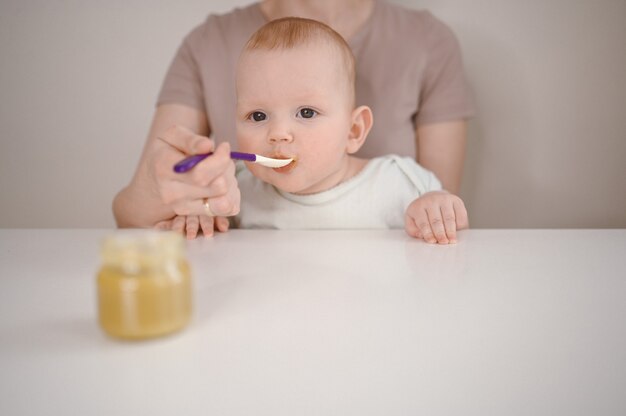Is Baby Formula Covered by Your Flexible Spending Account (FSA)?
Navigating the financial aspects of raising a child can be a daunting task. Among the many decisions parents must make is determining how to utilize health expense accounts like the Flexible Spending Account (FSA) and Health Savings Account (HSA) effectively. One frequent question that arises pertains to baby formula: Is it eligible for purchase using FSA funds? This article will delve into the core of this question, offering insights and guidance for new parents and those managing healthcare finances.
Understanding FSAs and What They Cover
What Is an FSA?
A Flexible Spending Account (FSA) is an employer-sponsored benefit that allows employees to set aside pre-tax dollars for eligible medical expenses. This can significantly reduce your taxable income, providing potential savings on a variety of healthcare-related costs. However, not all health-related products and services qualify, making it essential to understand what is covered.
Overview of Eligible Expenses
FSAs are primarily designed to cover out-of-pocket medical expenses such as:
- Medical co-pays
- Prescription medications
- Certain over-the-counter medications with a doctor’s prescription
- Medical equipment like crutches or wheelchairs
The eligibility of products can depend on IRS rules and the specific employer’s plan. Always review your plan’s documentation for precise details. But where does baby formula come in this picture?
Is Baby Formula FSA Eligible?
The Eligibility Criteria
The IRS has clear guidelines that govern what is considered a qualified medical expense. Generally, items or services must be used primarily to alleviate or prevent a physical or mental defect or illness. Baby formula, however, is classified as food, and food is not usually covered.
When Baby Formula Might Qualify
In certain situations, baby formula might be deemed eligible under specific FSAs:
Prescription Necessity: If a doctor prescribes a specific type of formula due to medical necessity (such as allergies or digestive issues), it could qualify. For example, hypoallergenic formulas for infants diagnosed with milk allergies might fall into this category.
Medical Use: Any condition that requires formula for treatment could potentially be justified as a valid expense. Always keep a detailed prescription or a doctor’s letter to support your claim.
Common Misunderstandings
It's important to differentiate regular formula bought for convenience or routine feeding from medically necessary purchases. Regular formula for a healthy infant does not typically qualify.
Navigating Your FSA Plan
Check with Your Employer
Since FSA plans can vary significantly, it’s prudent to consult the specific plan offered by your employer. Discuss your situation with the plan administrator to ensure you know the details of what's covered.
Document Everything
If you are claiming formula as part of a medical necessity:
- Obtain a Doctor’s Note: Secure a written statement from your physician outlining the medical need.
- Keep Receipts: Maintain all purchase proofs for potential audits.
Use Your FSA Smartly
FSA funds are often subject to the “use-it-or-lose-it” rule, which could forfeit unused savings. Planning future healthcare expenses carefully can help maximize their utility.
Comparing FSAs and HSAs
HSAs and Baby Formula
While FSAs are employer-managed, Health Savings Accounts (HSAs) offer more flexibility and are owned by individuals. Similar rules apply regarding the eligibility of baby formula:
- Medical Necessity: The same prescription-based qualifications apply.
- Investment Potential: HSAs allow for a balance to roll over annually and sometimes earn interest, unlike FSAs.
Benefits and Limitations
FSAs:
- Good for employees enrolled in employer health plans.
- Funds don’t roll over (with some exceptions).
HSAs:
- Must be paired with a high-deductible health plan (HDHP).
- Offers investment benefits and funds rollover capabilities.
Practical Tips for Parents
To make the most of any potential eligibility:
- Consult Your Pediatrician: Regularly speak about your child’s nutritional needs and any medical concerns that might necessitate specialized formula.
- Understand IRS Guidelines: Regularly updated, IRS publications can clarify what constitutes qualified medical expenses.
- Track Health Spending: Use budgeting tools to manage your FSA or HSA contributions effectively.
Quick Takeaways
Here’s a summarized list to guide your understanding and management of baby formula and FSA eligibility:
- 📑 Assess Medically: Formula must be medically necessary with documentation.
- 👨⚕️ Get Prescriptions: Ensure prescription validity from a healthcare professional.
- 💼 Know Your Plan: Verify coverage with your FSA or HSA provider.
- 🧾 Document Diligently: Keep all receipts and doctor’s notes.
- 💡 Plan Wisely: Understand the use-it-or-lose-it nature of FSAs.
Is It a Necessity?
Ultimately, considering if baby formula is FSA eligible boils down to whether it serves as a medical requirement. Regular formula for ordinary purposes is typically not covered, but exceptions exist under medical advisement. Always verify your situation with professionals to ensure compliance and fiscal smartness.
Exploring the intersection of healthcare and financial management is essential for parents navigating the complexities of child-rearing. Understanding the nuances of accounts like FSAs and HSAs can provide strategic benefits and ensure that families make informed decisions to optimize their resources efficiently.

Related Topics
- a Health Savings Account
- Are Cough Drops Hsa Eligible
- Are Diapers Fsa Eligible
- Are Diapers Hsa Eligible
- Are Electric Toothbrushes Hsa Eligible
- Are Fsa Contributions Tax Deductible
- Are Gym Memberships Hsa Eligible
- Are Health Savings Accounts Worth It
- Are Hsa Contributions Deductible
- Are Hsa Contributions Pre Tax
